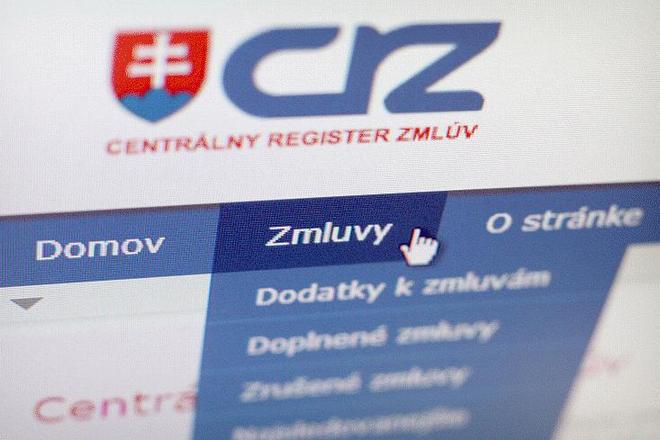THE CURRENT, less-than-ideal economic situation is making companies in Slovakia more cautious. As a result, they are looking more carefully than in the past at their trading and business partners. Some of them are calling for an official insolvency register that would allow anyone to trace the payment habits of existing or potential commercial partners. The Justice Ministry planned to launch registers to fill this gap, but its plans have been put on ice pending the outcome of the March 10 election.
Róbert Kičina, executive director of the Business Alliance of Slovakia (PAS), is one of those calling for an insolvency register, saying he would welcome wider, statutory access to information about businesses and payment discipline, for example via a website on defaulters or a blacklist. An insolvency register with up-to-date and well-arranged databases of ongoing bankruptcy proceedings would help too, he said.
“The insolvency register in the Czech Republic contains complete and updated information about ongoing bankruptcy proceedings and thus businesspeople have at their disposal trustworthy information [that allows them] to check whether a business partner is solvent, [see] if it is a participant in a bankruptcy proceeding, [and] have at their disposal comprehensive information about how the bankruptcy proceeding is progressing,” Kičina told The Slovak Spectator. “I would welcome the creation of a similar register in Slovakia.”
According to Kičina, such a register might also record the payment discipline of companies in the area of taxes and levies. Simultaneously, based on a PAS survey, 96 percent of businesses agree with the creation of a blacklist of legal representatives of companies who have violated the law in a fundamental way when doing business and thereby caused damage to others.
The Justice Ministry had laid out plans to launch new registers to make bankruptcy proceedings more transparent and contribute to the improvement of bankruptcy proceedings. These were the so-called insolvency register, which would have made all information about bankruptcy proceedings available to the public, and the register of disqualified executives, i.e. persons barred from managing a company. But as Peter Bubla, spokesperson for the Justice Ministry, told The Slovak Spectator, the ministry failed to fulfil this plan due to the shortened parliamentary term.
Radovan Pala, a partner at the e|n|w|c Natlacen Walderdorff Cancola law firm, says Slovakia lacks at least two publicly accessible registers: an insolvency register and an executory register, which would contain all data about ongoing as well as completed executory proceedings and their results.
The registers should be interconnected and should also be linked to existing public databases, especially the Commercial Journal and the Commercial Register.
“We are convinced that the bare existence of these registers might contribute to a significant reduction in secondary insolvency because businesspersons would be able to avoid trading with non-payers or else would be able to protect themselves from the risk of unrecoverable claims by setting proper payment conditions,” Pala told The Slovak Spectator.
Pala regards the current opportunities for creditors to obtain information about the outstanding debts of business entities as limited. Today it is possible to obtain relatively quickly, but only at an unofficial level, information about outstanding payments owed to the social security provider Sociálna Poisťovňa, health insurance companies, and overdue taxes. But information about debts owed to private debtors is not publicly available.
“The most important measure, which could in the near future significantly contribute to improving the whole system of credit-debtor relations, should be the launching of publicly accessible and mutually interconnected registers online which would contain reliable information about businesses and their statutory bodies,” said Pala.
On the other hand, Peter Makovický, the executive officer of Exekučná, a debt-recovery company, says he does not miss an official register of debtors.
“There are a number of good commercial products, where in a single database you will find information about a debtor’s immovable assets, security interests, past record as well as the latest data about the payment ability of the client,” Makovický told The Slovak Spectator.
The sources of these data about payment history are, apart from state organisations and health insurance companies, companies providing fuel payment cards, leasing companies and thousands of private companies that contribute to these registers.
“The result is a database updated daily with fine data,” said Makovický.
Commercial registers are run, for example, by the Slovak Credit Bureau (SCB) or by Solus, an association of legal entities. While the latter creates a negative register of client information, SCB runs a universal register, Plus SR, containing information, reports and analyses to support various kinds of risk management tools for companies.
“Plus SR contains information, updated daily, about all legal entities, holders of trade licences and non-profit organisations which are registered in the commercial register, the register of trade licence holders and the register of economic subjects,” Jana Marková, chief analyst at SCB told The Slovak Spectator, adding that it contains data about more than 700,000 economically active entities and a comprehensive overview of their financial situation, overdue obligations, real estate, security interests, bankruptcy proceedings, indexes, ratings and other analyses. Part of the system is also a comprehensive diagram of ownership relations and commercial links showing not only current but also historical ties between subjects.
The Plus SR register operates in the form of an internet application on the basis of an annual licence, or a multiple licence for a larger group of users.
In late September, Solus’s register contained more than 127,000 entries about almost 90,000 entities with outstanding financial obligations, the SITA newswire reported in early October. Solus said that its experience suggests that a listing in the register encourages debtors to pay up: in almost 12,000 cases, as of October, entities settled their debts after being added to the register, spokesperson Zuzana Krajčovičová said, as reported by SITA.



 Is another register needed? (source: SME)
Is another register needed? (source: SME)